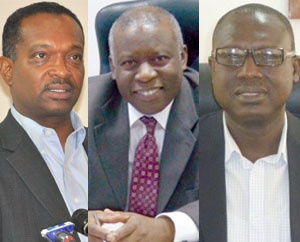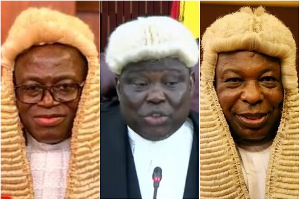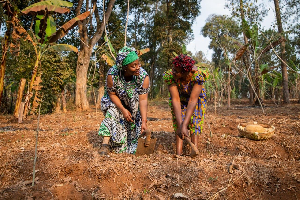The Public Utilities Regulatory Commission (PURC) has announced that its attention has been drawn to various arguments and submissions in the public sphere about tariff adjustments for electricity generation, distribution, transmission and water utility service providers, which are regulated by the Commission.
The commission noted that, it has also received proposals from utility providers for a possible adjustment in the current tariffs being paid by consumers for their services.
In a release issued yesterday in Accra and signed by Nana Yaa Akyempim Jantuah, Director of Public Relations & External Affairs, it commented: “as producers of water and electricity, these companies have the right to present proposals for an adjustment in tariffs. However, there are processes that the Commission has to follow before it can reach any major decision on the request for a tariff adjustment.”
According to PURC, it is the legally mandated body which has the responsibility to review tariffs for electricity, water and natural gas in Ghana.
“PURC, in accordance with the PURC Act 1997 (Act 583), is an independent regulatory body set up to regulate water, electricity and natural gas in the country. Subject to the provisions of the PURC Act, the Commission shall not be subject to the direction or control of any person or authority in the performance of its functions.”
As a first step to considering the requests of the service providers, the Commission indicated that it is going to interrogate proposals from the utility service providers after which they would be requested to publish key highlights of their proposals in the media for the public/consumers to comment and contribute their views.
“Such a publication is supposed to give a chronological account of revenues that were accrued to the service providers from the 2010-2011 tariff adjustments and how it was used for the benefit of the consumer. It will also specify key challenges and strategies to address them in order to improve the quality of service, offer reasons for new tariffs requests, intended revenue to be generated in the short to medium term, percentage of increase being requested. Additionally, it should detail how providers are going to address public/consumer concerns in respect of efficiency improvements and quality of service issues during the nationwide public engagements on quality of service.
“There is also going to be a stakeholder consultation process where the service providers with the Commission as an intermediary would be given the opportunity to present their case to key stakeholders who have an interest in the industry and represent various interest groups in the country.
It said that the comments and inputs received by the public/consumers and these key stakeholders would be one of the key ingredients for a final decision by the Commission.
The Commission said apart from the fact that these processes are mandatory, it is also a way of deepening transparency, equity and fairness in the regulatory process.
It, therefore, appealed to all concerned to allow it to go through an independent regulatory process, to come out with an outcome that would be fair and equitable to all concerned having in mind the economic development of the country.
“Protecting the interest of the consumer and the service provider is key, however, whilst ensuring the financial viability of the utility service provider, the consumer must also be treated fairly and equitably.”
The VRA noted that, it is struggling with the expenditure of $3 million anytime it fuels its plants with light crude oil since the shutdown of the West Africa Gas Pipeline Company.
This, among others, could be the reason for VRA’s call for an upward revision of tariffs to make up for the losses.
It added that if measures are not put in place to address the frequent losses, it could collapse.
Business News of Friday, 31 May 2013
Source: Daily Guide













